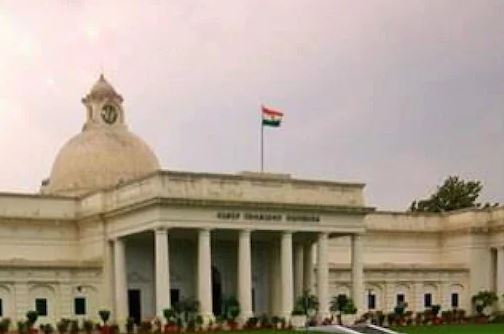The Indian Institute of Technology (IIT) Roorkee along with YB Scientific R&D Solutions have jointly developed a process to produce cement free paver block and wall tiles from waste polyethylene packets, milk packets and oil packets in an environment friendly way. Named as PRAYASPR, it can be an attractive option for managing plastic wastes by the waste producers as per the Plastic Waste Management (Amendment) Rules 2021, says the institute.
These products also have better interlocking and aesthetic look, long lifetime. They are non-breakable and have fair resale value, the institute said. Team member, Prof Prasenjit Mondal, Department of Chemical Engineering, IIT Roorkee explained that the technology “involves recycling of waste polyethylene packets for development of cement less paver blocks taking the sustainable route. Plastic packets are first shredded to form granules which are then mixed with additives to soften and further form a slurry which is then molded in a hydraulic press to form blocks.”
“The products may be used in building premises, monument premises, landscapes, public gardens and parks, domestic drives, paths and floor tiles, among others in an eco-friendly way,” Mondal added.
To prepare one paver block around 250 g of waste plastics is used and to cover a 1 sq ft surface area around 1.5 kg of waste plastics will be needed. The production price, per piece, is around Rs 7-8. “The tiles will be more economic than the paver blocks with per square feet production cost of around Rs 14 only,” it added.
The team members included Prof Prasenjit Mondal, Hemant Goyal, Navneeta Lal, Department of Chemical Engineering, IIT Roorkee and Yash Dua, YB Scientific R&D Solution Roorkee, Ramnagar.
Pointing out the necessity for PRAYASPR, Yash Dua, YB Scientific R&D Solution Roorkee, Ramnagar said, “The plastic waste generated in India was close to 34 lakh tons in the year 2019-20 with an annual increase of more than 21 per cent. And this plastic waste contains low density polyethylene (LDPE) which creates a problem by choking sewer lines. Moreover, in India waste plastics form widespread littering on the landscape due to the lack of proper management techniques producing harmful environmental consequences. Thus, a sustainable route for waste plastics management was a necessity which has been realized with PRAYASPR under the auspices of IIT Roorkee.”
Packaging 360 is a comprehensive knowledge sharing ecosystem for the Indian packaging industry. Our services include an online content platform to deliver news, insights and case studies; organising conferences seminars and customised training; Providing Bespoke Project Consulting, Market Research and Intelligence.







